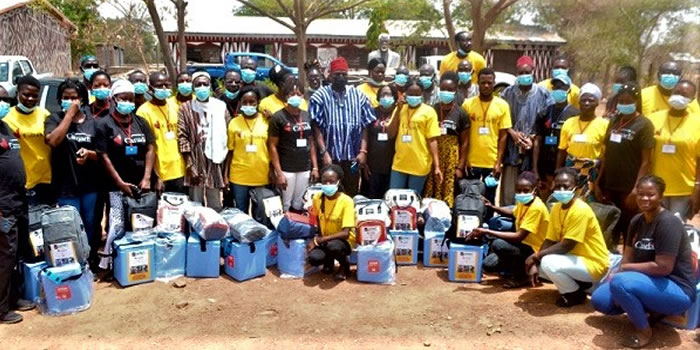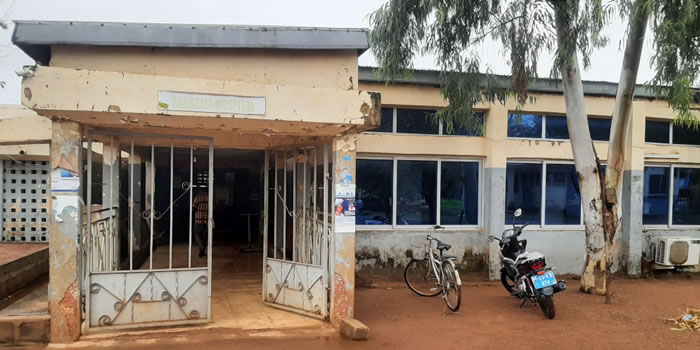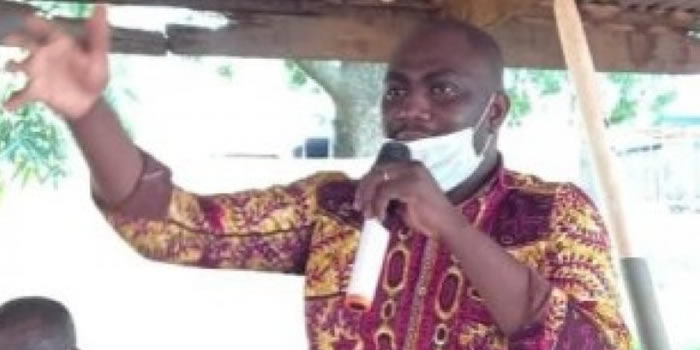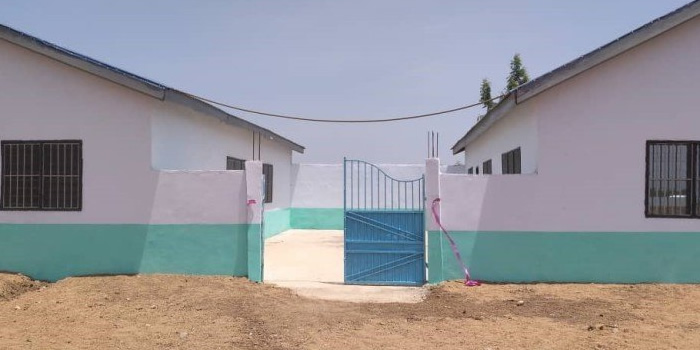

HEALTH
30 Community animal health workers trained in Builsa North
The provision of animal health care has been a big challenge in northern Ghana, especially in the vulnerable rural communities.

Date Created : 6/12/2023 12:00:00 AM : Story Author : NewsGhana/Ghanadistricts.com
Almost every household in the rural areas of northern Ghana keeps a local breed of poultry and small ruminants (sheep, goats), among others, but most of these livestock keepers lack access to affordable preventive animal healthcare services.
As a major step towards addressing this pressing challenge, the Ghana Poultry Network (GAPNET), a non-governmental organisation (NGO) with financial support from the United Kingdom (UK) Department of Environment, Food and Rural Affairs, has trained 30 Community Animal Health Workers (CAHWs) in the Builsa North Municipality in the Upper East Region.
The beneficiaries, made up of 21 females and nine males, were carefully selected from communities such as Deborinsa, Wiaga-Tandema, Wiaga-Kpadema, Wiaga-Wabilinsa, Kandema-Gaadema, Kalijiisa, Bubolizugu, Siniensi-Abisiyeri, Siniensi-Yikpieng and Nanjonpung.
It formed part of a three-year project spanning 2023-2026 which is aimed at training 90 CAHWs in the Builsa North, Builsa South and Kubori –Yagaba.
The overall objective of the CAHWs training and activities is to improve the economic and social well-being of the poorest, most marginalised people, particularly women and girls, through support to animal, human and environmental health (One Health) initiatives.
At the end of the training, each participant was presented with a mobile phone on which the Food and Agriculture Organisation Event Mobile Application (EMA-I) has been installed, basic veterinary drugs and a bicycle to enhance animal health delivery in the various communities.
Also, vaccine flasks, carrier bags and other tools and equipment needed to aid them in the performance of their duties were presented to them, as well as a certificate of participation.
Speaking at the end of the training , the National Coordinator of the project, Gloria Essel, said the main reason for the choice of the municipality was the high livestock population.
She said “undoubtedly, the livestock in the municipality provided the basic needs for livelihoods, food security and nutrition.
She stated that GAPNET would adequately supervise and monitor the activities of the trained CAHWs to ensure sufficient reporting of all animal diseases at community levels to the local veterinary officers.
She advised the beneficiaries to do the work diligently, since it was also an opportunity for them to gain more knowledge and develop interest in the veterinary field.
The Upper East Regional Veterinary Officer, Dr Henry Nii Ayi Anang, bemoaned the operations of some quacks whose activities had been a great source of worry to the region.
While advising the beneficiaries to stick to their mandate, he disclosed that they will be observed for six months before they are licensed.
He stressed, “this license you will be given will be renewed annually to enable you to discharge your duties professionally.”
The Municipal Chief Executive for Builsa North, Vida Akantagriwen Anaab, in a speech delivered on her behalf, said access to quality animal health was a challenge as attention is always given to crops.
As a result, she indicated that it had over the years affected animal production in the area, saying “we are happy with the training of the CAHWs to augment the few veterinary officers in the municipality.”
She urged the participants to put the knowledge acquired to good use to make an impact and achieve the intended objectives of the training.
In an interview, some of the participants were appreciative of the opportunity given them and pledged to contribute their quota towards improving animal health in the municipality.







 facebook
facebook
 X
X
 Youtube
Youtube
 instagram
instagram
 +233 593 831 280
+233 593 831 280 0800 430 430
0800 430 430 GPS: GE-231-4383
GPS: GE-231-4383 info@ghanadistricts.com
info@ghanadistricts.com Box GP1044, Accra, Ghana
Box GP1044, Accra, Ghana